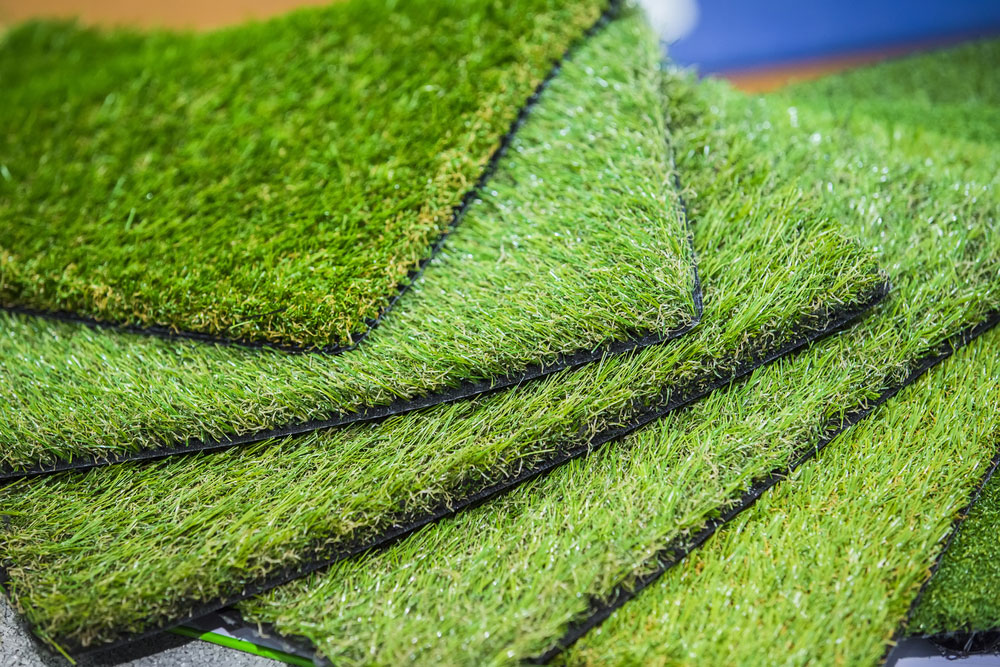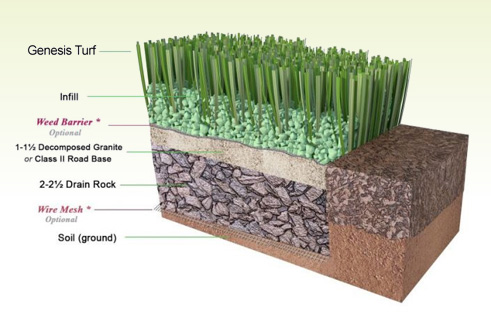Explore the Environmental Benefits of Opting for Synthetic Grass Solutions
The adoption of synthetic grass options offers an engaging chance to deal with pushing ecological difficulties. By dramatically minimizing water usage and reducing the application of hazardous chemicals, these alternatives not only advertise sustainable landscape design but likewise secure neighborhood ecosystems.
Water Conservation Advantages
One of the most significant benefits of synthetic grass is its capacity to preserve water. Standard lawn lawns require substantial irrigation, specifically in locations susceptible to drought or water restrictions. In comparison, synthetic grass does not require watering, substantially decreasing the overall need for water sources. This function is especially useful in deserts where water deficiency is a pushing worry.
By eliminating the demand for normal watering, synthetic lawn adds to lasting landscape methods and helps alleviate the ecological effect of extreme water usage. The preservation of water extends to the reduction of overflow, which can lead to dirt erosion and waterway contamination.
In addition, the installation of man-made lawn allows property owners and communities to allot water resources much more effectively, concentrating on vital usages such as alcohol consumption water and farming. The change towards synthetic grass not just advertises liable water use yet additionally aligns with broader environmental goals targeted at preserving natural deposits.
As communities increasingly prioritize sustainability, the water conservation benefits of synthetic grass present a compelling case for its adoption in domestic and commercial landscaping projects.
Reduced Chemical Usage
The change to man-made grass dramatically lowers the reliance on chemical therapies commonly used in all-natural turf maintenance. Typical lawn administration commonly entails the application of herbicides, fertilizers, and pesticides to advertise development and control insects. These chemicals can pose threats to human health and wellness, local wild animals, and the atmosphere, adding to dirt and water contamination.
On the other hand, synthetic grass removes the requirement for these harmful materials. When installed, it needs minimal maintenance, mostly containing normal cleaning and seldom infill replenishment. This reduction in chemical use not only profits the instant environment yet likewise adds to more comprehensive environmental stability. By minimizing the launch of artificial compounds right into the environment, synthetic grass promotes much healthier soil and water supply.
In addition, the absence of chemical runoff connected with artificial grass installments helps secure neighborhood waterways from air pollution, sustaining aquatic life and preserving biodiversity. Arizona turf. As communities progressively focus on lasting practices, deciding for artificial grass offers a viable service that lines up with ecological preservation objectives. Via this shift, residential or commercial property owners can take pleasure in lavish environment-friendly rooms without compromising ecological health, paving the way for a much more sustainable future
Lower Carbon Impact

In addition, the installation of man-made lawn can cause significant water conservation. Natural grass require significant amounts of water for irrigation, which not only includes to the carbon footprint related to water removal and therapy yet additionally pressures neighborhood water sources. On the other hand, synthetic grass needs minimal maintenance, requiring no watering, thus substantially minimizing water use and its connected power costs.
In addition, the longevity of artificial turf contributes to its lower carbon influence. With a life-span of as much as 15 years or more, the need for frequent replacements is diminished, resulting in much less waste and reduced energy consumption in production and getting rid of conventional grass alternatives. On the whole, synthetic grass provides a sustainable alternative for ecologically mindful landscaping.
Environment Conservation
Habitat conservation is an essential factor to consider in the argument over landscape design options, particularly when contrasting synthetic grass to all-natural turf. All-natural lawn lawns often call for substantial maintenance, consisting of using plant foods, pesticides, and herbicides, which can detrimentally influence regional communities. These chemicals can seep into the dirt and waterways, damaging native vegetation and fauna and interrupting local environments.
Man-made grass gets rid of the requirement for dangerous chemicals, therefore shielding neighboring wild animals and keeping the honesty of bordering ecological communities. The installment of fabricated lawn can lead to the conversion of previous turf areas into even more biodiverse landscapes, such as pollinator yards or indigenous plant areas, which can support local wild animals.
Inevitably, the change to man-made grass not only conserves water and reduces upkeep initiatives but additionally cultivates a much more unified connection in between human tasks and the natural setting, advertising habitat conservation at the same time.
Long-Term Sustainability
Long-lasting sustainability is a vital variable in examining the advantages of synthetic grass over typical lawn yards. One of one of the most considerable advantages of synthetic lawn web link is its toughness; it can click for source last as much as 15-20 years with minimal upkeep, whereas natural grass calls for regular reseeding and substitute. This durability decreases the need for consistent resources, such as water, plant foods, and pesticides, which are essential for preserving a healthy turf lawn.
In addition, synthetic grass adds to a decrease in carbon emissions connected with lawn treatment equipment. Typical yards usually need gas-powered lawn mowers, trimmers, and blowers, every one of which add to air pollution. Arizona turf. In comparison, synthetic grass gets rid of the need for such equipment, promoting a cleaner environment
Moreover, the manufacturing of synthetic lawn increasingly uses recycled products, enhancing its sustainability profile. As makers take on environment-friendly techniques, the environmental footprint of synthetic grass remains to reduce.

Final Thought
The adoption of fabricated grass remedies provides significant ecological advantages, consisting of substantial water preservation, reduced reliance on hazardous chemicals, and a reduced carbon footprint. In addition, synthetic lawn aids in maintaining natural environments by minimizing land disruption and advertising long-term sustainability via making use of long lasting materials. Jointly, these variables underscore the possibility of artificial turf to contribute favorably to environmental health and provide a sensible alternative to standard landscape design techniques in a progressively resource-conscious globe.
In comparison, artificial turf does not need watering, dramatically reducing the overall demand for water resources. By lessening the launch of artificial substances right into the ecosystem, artificial turf promotes healthier soil and water systems.
Moreover, the setup of fabricated lawn can result in significant water preservation. In comparison, check these guys out artificial lawn requires marginal upkeep, calling for no watering, therefore significantly reducing water use and its linked power prices.
